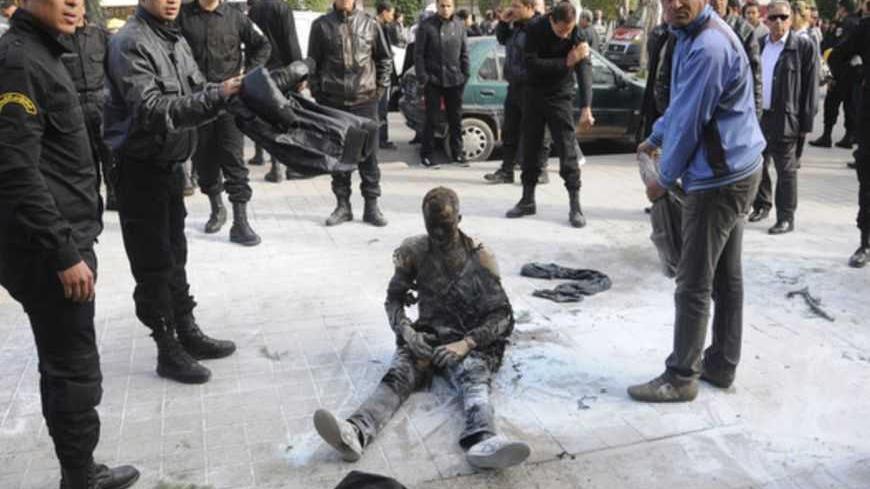TUNIS — March 12 was a regular Tuesday morning in the Tunisian capital. Employees were on their way to work and the sun was shining on Avenue Habib Bourghuiba. Yet two events were about to happen that would exemplify the struggle for the soul of Tunisia’s revolution. The question surrounding Tunisia's "dignity revolution" is: Which dignity should take priority, freedom of expression or a job?
In front of the opera house, a well-dressed crowd gathered, sporting trendy sunglasses. They were there to protest against the arrest of their friend, actress Sabrina Klibi, who had been taken at 4 a.m. the previous morning by security services following her participation in a video called "The police are dogs," which criticizes violence by the police.



